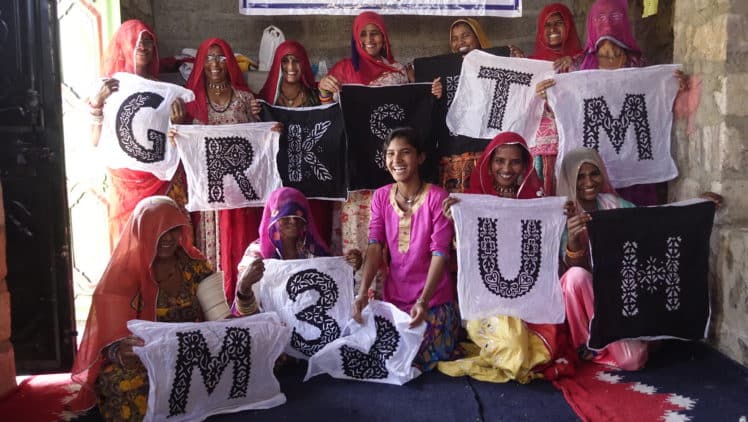It has been a couple of weeks since my colleague, Conrad Braganza, and I did a Zoom presentation on the NICE Aarohana platform focusing on taking the mahua spirit global. Thought we would share a few related thoughts and considerations and our long-term vision for mahua.
Ever since we launched our official (IMFL/IML) mahua spirit and liqueur in June of 2018, there has been a huge spike in national and international interest in the remarkable “national treasure of India, hidden in plain sight” story of mahua, the numerous facets of which are steeped in centuries of cultural traditions of tens of millions of indigenous tribal peoples (adivasis) who are denizens of the forests of the heart of the Indian subcontinent.
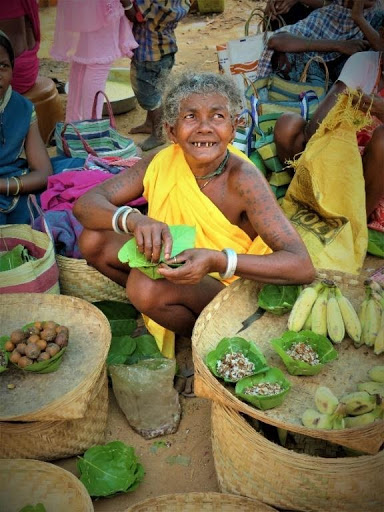
A tribal woman at the weekly Haat Bazaar selling cultivated and collected produce
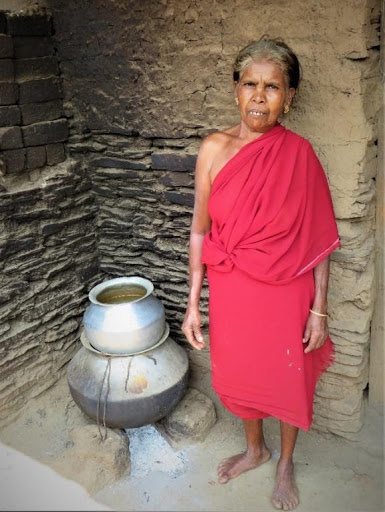
A tribal woman distiller with her rustic still
While feeling privileged to be the “chosen by happenstance” company to virtually define and reimagine the potential of this new global-category-of-one, sweet-flower based, pot-distilled spirit that is incredibly versatile, we are seized of the concern that some have expressed about the impact of this “black swan, blue ocean” opportunity on the tribal communities.
Policy Recommendations
We are very clear about one thing: Millions of mahua trees and their produce are owned by tribal communities, even when they are located on government-owned land. No entity, government, corporate or private, can usurp this ownership from them. In our vision for mahua, the tribals to whom it holds great significance, and India, we recommend that a relatively small portion of the estimated annual harvest of 500,000,000 kgs of mahua flowers can be hygienically collected by tribal Self Help Groups (SHG) and cooperatives for sale as food and alcohol grade mahua, with the rest continuing to be used by tribals for their own consumption. High-quality food grade mahua flowers can be branded and marketed in small quantities to urban consumers to improve the livelihood opportunities for tribals.
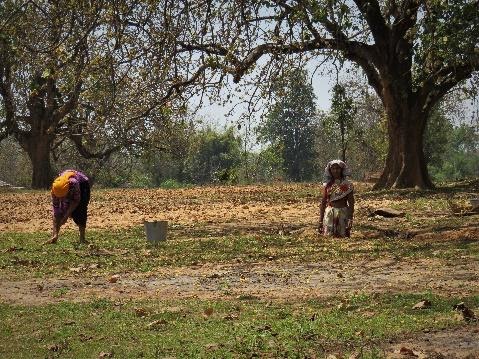
Tribal women collecting flowers under mahua trees in full bloom
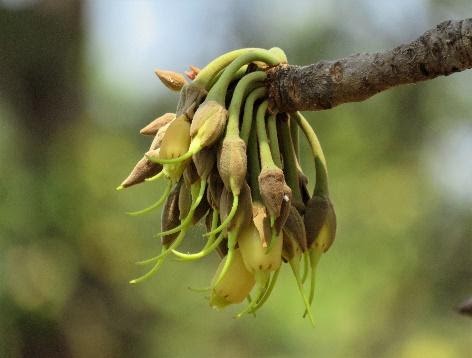
A bunch of mahua flowers
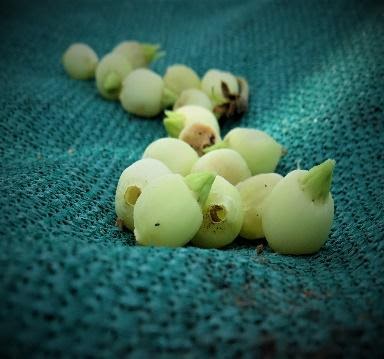
Mahua flowers being hygienically collected on nets
The mahua economy is significant, especially to tribals, in 13 states of Central India. We have written up and made policy recommendations to the Excise authorities of several state governments that currently each have their own policy about mahua. Our policy recommendations keep in the forefront protection of tribal rights and culture, improvement of tribal livelihood and rolling back of the repressive regime (dating back to colonial times) that has kept the conservatively estimated INR 2000 crore (~$ 250 Million) informal mahua trade underground, with typically non-tribal “middlemen” and traders currently reaping the major benefit from it.
Given the economic (and cultural) importance of mahua flowers and mahua alcohol to the adivasis, we have also proposed the immediate setting up of a Central Mahua Research Institute (ideally under a centrally funded program) that will research and document critical data and best practices about mahua and products made from mahua, among other things.
Note that there are several such Central Research Institutes for products of economic importance to the country, like the Central Citrus Research Institute (under ICAR) in Nagpur.
Long-term Vision for Mahua
Here is a summary of our long-term vision for mahua:
- Free trade of mahua flowers, within and outside state boundaries, without authorities exercising control or imposing special taxes (How are Mahua flowers different from jaggery, or sugarcane, or cashew fruit, all of which can be used to make alcohol? There is no regulation of these items, so why should there be special ill-treatment of mahua flowers?)
- Heritage alcohols, like mahua, getting a preferential excise tax category, to encourage entrepreneurs to explore this rich territory. The taxes in this Heritage category should be much lower than IML/IMFL and higher than country liquor. A Heritage alcohol tax category notification and implementation is the policy change we’re proposing
- Better bulk prices given to tribals for hygienic mahua flowers
- Significantly enlarged markets for food-grade mahua flowers … and mahua based food items … with courier-based facilitation
- Establishment of mahua flower banks at the local village level, run by tribal peoples used for storing and selling mahua flowers to be used locally and food-grade mahua flowers that can be sold at higher prices to non-local buyers
- Mahua inspired tourism in the Central forest belt of India, involving
- Month long cultural festivals during mahua flowering season
- Year-round mahua distillery tours
- Tribal arts and crafts outlets, also selling quality mahua based alcohols
- International quality mahua spirit-based products become available in top bars and duty-free shops around the world
- Non-resident Indians, and tourists (Indian and foreign) carry back ‘proudly Made in India’ mahua spirit-based products as gifts
- Mahua manufacturers in the mahua belt, especially those of tribal origin, build quality mahua brands, with the products available in labelled bottles
- Mahua is declared a Regional Heritage spirit in several mahua belt states and then a National Heritage spirit of India
- Mahua alcohol manufacturers in the mahua belt formulate, and obtain, a Geographical Indication (GI) for mahua
Further reading
For further background information on some of the topics touched upon in this brief write up, please peruse the text and video resources below, via the links:
- Agave India website especially Media and FAQ sections
- Booze Business Sep 2018, NYC based Alcobev guru, Arthur Shapiro – ‘A National Drink is Born’
- Spiritz Oct 2018, Desmond Nazareth, ‘Mahua as India’s GI enabled National Spirit’
- Live Mint Oct 2018, Diya Kohli – ‘The Spirit of Mahua’
- Video Overview: ‘Welcome to DesmondJi’
- Video: ‘DesmondJi – India’s first craft distillery: featuring agave spirits’
- Video: Pia Chatterjee ‘Brut India Oct 2019’ – viral video generating significant buzz with over 700,000 views since its release
- Video: Desmond Nazareth – ‘Crafting a National Spirit for India – TEDx’
Authors: Desmond Nazareth, founder of Agave India and a NICE Friend.
Conrad Braganza, Manager – Sales & Marketing and Blender, Agave India.
Desmond and Conrad were speakers at the recently concluded NICE Aarohana series.
Image credits: Conrad Braganza
Published by Chitra Aiyer, NICE



